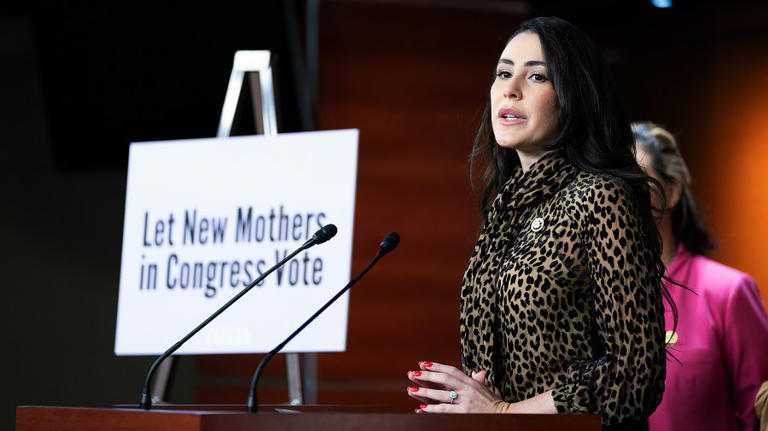In a significant bipartisan move, Florida State Representative Anna Luna has introduced House Resolution 967, a proposal designed to enable new mothers in Congress to fulfill their duties while allowing for postpartum recovery at home. The resolution seeks to implement a proxy voting system that would permit new moms to cast votes remotely for up to six weeks, acknowledging the average time required for postpartum healing.
Proxy voting is a mechanism that allows a representative to vote on behalf of another member who is unable to be physically present during a scheduled congressional vote. Representative Luna emphasizes the necessity of such a policy, stating, “To date, only 12 women in history have ever given birth in this body. That is less than 0.1% of members who have ever come through the doors of this institution. This place is completely out of touch with average-day Americans, and in passing this legislation, it is the first step forward in the right direction.”
The proposed resolution aligns with efforts to make Congress more inclusive and accommodating to the needs of its members, particularly in recognizing the unique challenges faced by new mothers. Luna’s initiative aims to bridge the gap between the demands of public service and the crucial period of postpartum recovery.

Read more:
- Untouched Wealth: $2 Million in Coins Still in Existence
- New Moms in Texas Eligible for Full-Year Medicaid and CHIP Benefits
- Federal Judge Finds First Amendment Infringement in Ohio Commissioner’s Meeting Disruption Arrest.
- Tragic Dental Procedure in Texas Leaves Miami Woman with Severe Brain Damage
Notably, the resolution addresses a longstanding issue where few women in Congress have been mothers, and the existing system does not adequately cater to the physical and emotional needs of those who choose to start families while serving in elected positions.
The proposal draws attention to the fact that, historically, only a minimal percentage of women have given birth while in Congress. Luna argues that the current legislative environment is not representative of the experiences of everyday Americans and that implementing such legislation is a crucial first step toward a more inclusive and understanding political landscape.
This effort echoes the broader conversation about the representation of women in politics and the need for policies that address the specific challenges faced by female lawmakers. By acknowledging the unique circumstances surrounding childbirth and postpartum recovery, Luna’s proposal seeks to bring Congress more in line with the realities of modern American life.
The issue of proxy voting for new mothers gained attention during the COVID-19 pandemic when former House Speaker Nancy Pelosi authorized the practice to accommodate the challenges posed by the public health crisis. However, the utilization of proxy voting was discontinued last year after Republicans regained control of the House.
The reintroduction of the concept through Luna’s resolution is indicative of a bipartisan recognition of the importance of supporting new mothers in Congress. The proposal not only addresses the physical recovery aspect but also acknowledges the significance of allowing mothers to be present for their newborns during the crucial initial weeks.
Supporters argue that such a policy would contribute to a more inclusive and family-friendly work environment within Congress, fostering a culture that recognizes and accommodates the diverse needs of its members. As the resolution gains traction, it reflects a broader societal shift towards acknowledging the intersection of professional and personal life, especially for women in leadership roles.
In conclusion, House Resolution 967, introduced by Representative Anna Luna, stands as a noteworthy initiative in the ongoing effort to make Congress more accessible and accommodating. The proposal, centered around proxy voting for new mothers, addresses a gap in the system and strives to create a more inclusive political landscape that aligns with the diverse experiences of the American population.

